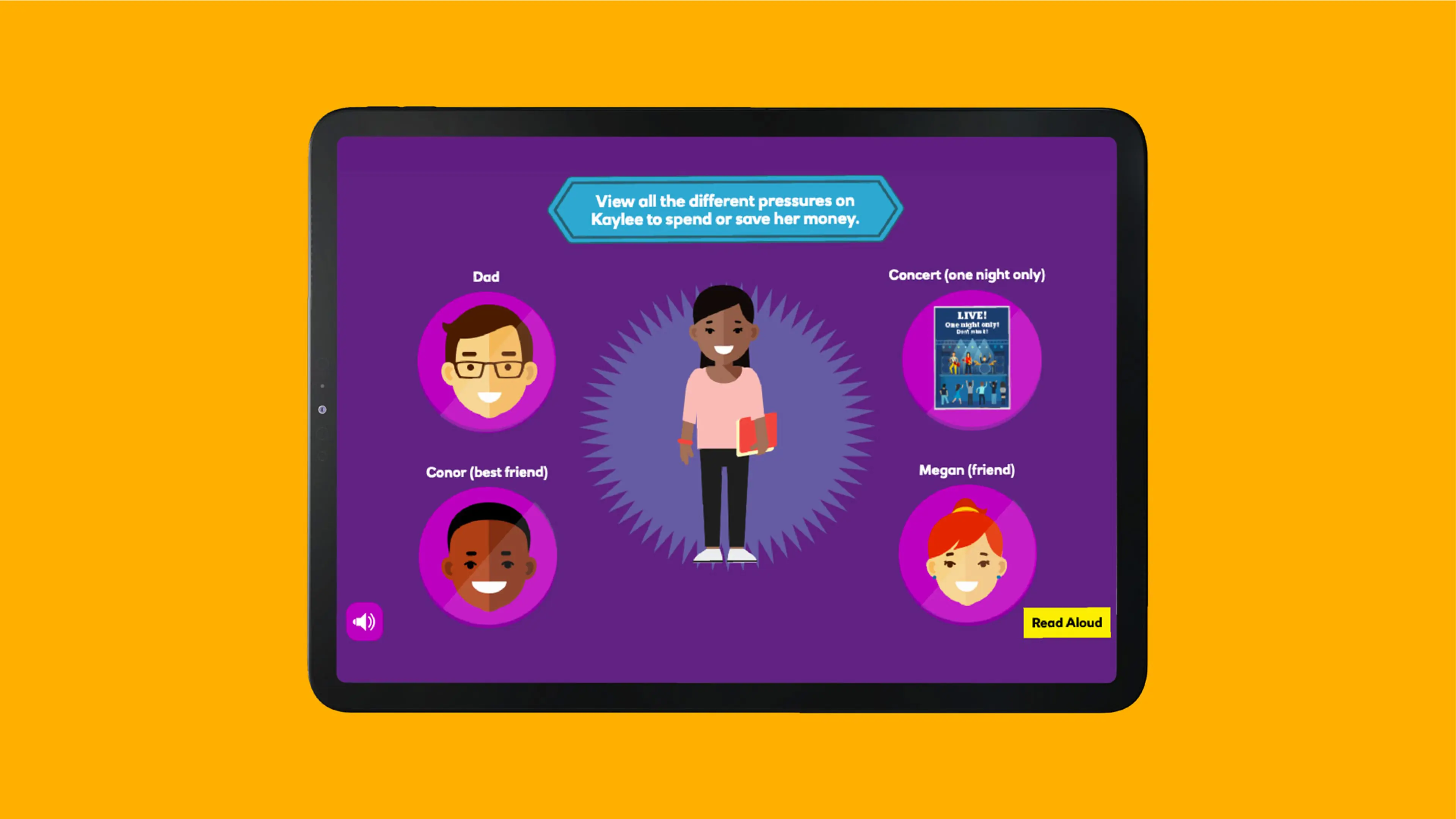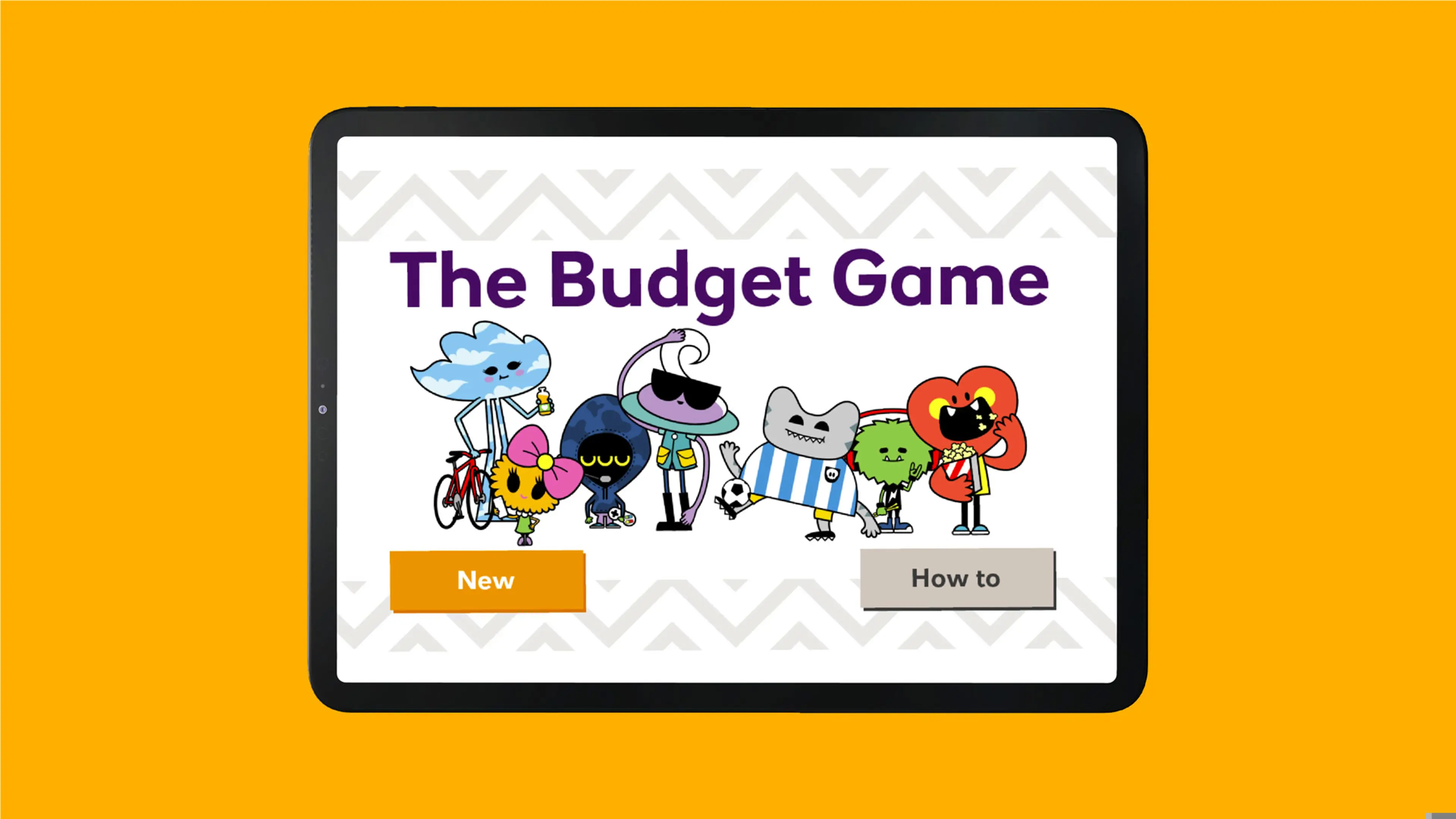How to teach children about budgeting
Topic:
Duration:
Subjects:
Format:
Media type:
Key skills:

Teaching young people about money isn’t always easy. Learning to budget requires practice and is a vital life skill. It’s important to help young people learn how to make decisions about how they spend or save their money.
Here's how to make budgeting fun and effective:
What Is Budgeting?
Simply put, a budget is a plan for how to spend and save money. For adults it’s by looking at your income (from work and other things) and your outgoings like household bills, leisure and travel. If there’s something you need but can’t afford it just now, creating a budget can let you see how long it will take to save for it.
It’s the same for children - by comparing income (like pocket money) and expenses, children can see how to save for what they want. Budgeting also teaches children to spot ways to earn more or spend less.
Interactive ways to teach your child about budgeting
- Savings Jar: Decorate and label jars for different goals such as video games, birthday presents or clothes. Encourage them to divide their pocket money between these and watch their savings grow.
- Create their own budget: Help them to create their own budget to reach their goals faster. Show them they can do this by looking at what they have coming in (earnings including pocket money) vs what they want or need to spend.
- Grocery Shopping Challenge: Give teens a budget for a weekly food shop to practice managing money and for younger children you could ask them to find you certain items within a budget. You could also give them a budget for a family day out and check they’ve included everything like transport costs, tickets and food.
- Help young adults calculate where they’re at: Keeping track of their income and expenses is an important part of independence. They could do this with pen and paper or with a digital budget calculator or a spreadsheet.

Making Budgeting a Habit
Help teach your child that budgeting may need to change over time. This might be because income/and or expenses change. Use events like birthdays and Christmas to set long-term goals. For example, explain that by putting away some of their pocket money each month from January will make buying gifts in December easier and will likely mean they’ll have December’s pocket money all to themselves. Practicing good money habits in front of children makes them more likely to follow suit.
Brushing Up on Your Budgeting Skills
Before teaching, ensure you're confident in your own budgeting knowledge. Assess your own finances and lead by example.
And remember, NatWest Thrive offers lots of support when you’re looking to tackle the world of money with kids, teens, and young adults – from budgetingand saving to cryptocurrencies and more.
Related resources

Balancing budgets
Help the characters decide how to spend their money, and consider the influences on them.
Topic
- Mastering money
Subject
- Computing / Science & Technology
- Numeracy
- Literacy
- PSHE
Key Skills
- Problem solving
Age
11-14 years
Duration
10-15 mins
Media Type
Interactive

Five steps to smashing a budget
Know how to put together a budget with the 50-30-20 rule.
Topic
- Mastering money
Subject
- PSHE
- Numeracy
- Citizenship
Key Skills
- Problem solving
- Aiming high
Age
14-18 years
Duration
0-5 mins
Media Type
PDF

Becoming a budget master
Play this budget game to practise sticking to a budget and staying happy and healthy.
Topic
- Mastering money
Subject
- Numeracy
- Literacy
- Computing / Science & Technology
- PSHE
Key Skills
- Problem solving
- Creativity
- Leadership
Age
11-14 years
Duration
15-30 mins
Media Type
Interactive
